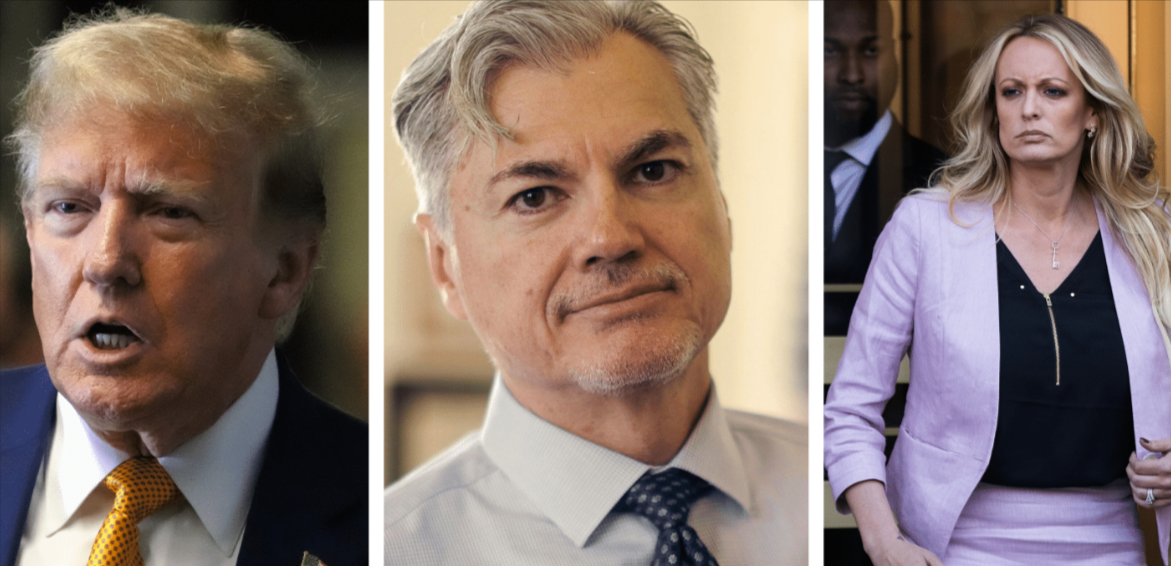Judge Delays Decision On Whether To Overturn Trump’s N.Y. Hush Money Conviction

President-elect Donald Trump’s legal team and the Manhattan district attorney’s office have agreed to defer action on the hush money lawsuit until November 19. This pause will allow both sides to introduce new arguments on how Trump’s election win impacts the case.
After the Supreme Court’s recent ruling on presidential immunity, Judge Juan Merchan was scheduled to decide Tuesday on whether to overturn the corporate fraud conviction. However, both parties agreed to a delay.
“The people agree that these are unprecedented circumstances, and the arguments raised by defense counsel require careful consideration to ensure that any further steps in this proceeding appropriately balance the competing interests of (1) a jury verdict of guilt following a trial that has the presumption of regularity; and (2) the Office of the President,” wrote prosecutor Matthew Colangelo to the judge.
Trump’s lawyer, Emil Bove, asserted that the charges should be dropped.
“A stay, and dismissal, are necessary to avoid unconstitutional impediments to President Trump’s ability to govern,” Bove argued.
🚨BREAKING: Judge Merchan delays ruling on Trump business records case pic.twitter.com/LiCEIGq0CE
— Benny Johnson (@bennyjohnson) November 12, 2024
BREAKING: Justice Merchan has granted a request from prosecutions/defense to pause deadlines — including Trump's sentencing date — while they consider the effect of his election as president. https://t.co/LaeJlAyTDi pic.twitter.com/SAHVbo3HbG
— Kyle Cheney (@kyledcheney) November 12, 2024
Following the Supreme Court’s June ruling that presidents should have broad protection over official acts, Trump is seeking to overturn his convictions on 34 counts of falsifying business records.
This ruling has twice allowed Trump to postpone his sentencing. The immunity decision has indefinitely delayed Trump’s federal case on election subversion. Special counsel Jack Smith is now in discussions with Justice Department leadership regarding the resolution of Trump’s federal cases.
Trump’s legal team contends that the case should be dismissed, or his conviction annulled, as the district attorney’s office improperly presented evidence from his first term that shouldn’t have been introduced to the jury.
In July, Trump’s attorneys argued, “The Manhattan district attorney violated the Presidential immunity doctrine and the Supremacy Clause by relying on evidence relating to President Trump’s official acts in 2017 and 2018 to unfairly prejudice President Trump in this unprecedented and unfounded prosecution relating to purported business records.” They added, “Much of the unconstitutional official-acts evidence concerned actions taken pursuant to ‘core’ Executive power for which ‘absolute’ immunity applies.”
Meanwhile, the Manhattan District Attorney’s office, led by Alvin Bragg, maintained that Trump should be found guilty, citing “overwhelming” evidence presented at trial.
Prosecutors argue that the Supreme Court ruling on immunity does not apply here, as Trump’s conviction was for acts unrelated to his official duties, including altering business records to influence the 2016 election.
Trump’s legal team claimed that the jury should not have heard testimony from White House aides Hope Hicks and Madeleine Westerhout or been shown Trump’s tweets from his time in office.
They also argued that Hicks’s testimony about 2018 events, when she served as White House Communications Director, should have been excluded.
“The Supreme Court decision specifically forbids prosecutors from offering ‘testimony’ from a President’s ‘advisors’ for ‘probing the official act,’” Trump’s lawyers contended.
Furthermore, they argued that Trump’s Twitter account served as “one of the White House’s main vehicles for conducting official business,” and thus, tweets from his official account, including a series from 2018 denying the hush money payments to Stormy Daniels, should not have been used as evidence.
Prosecutors responded, noting that Trump’s legal team did not challenge most of the evidence now under dispute during the trial, and therefore, cannot challenge it post-trial.